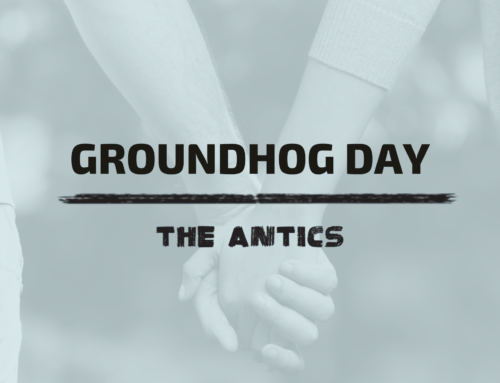That is a tough question and one that I have been asking myself, perhaps too often. My heartfelt thoughts and prayers go out to the families and friends who have lost loved ones due to this devastating virus and related illnesses. Experiencing loss is part of the human condition, but that doesn’t make it any easier.
As I look back over the past 18 months or so, I feel like the entire world has been involved in a massive game of 52-card pick up. (If you don’t know the game, it’s when you take a deck of cards and throw them up in the air, and then proceed to pick them up off of the floor.) Prior to COVID-19, it seemed we all had our values, priorities, and life plans all neatly stacked in our respective “decks”, then BAM! Those cards got tossed in the air and we are now looking around at this jumbled assortment of cards and nothing is in order, and nothing is the way it used to be. Our world has changed and we are trying desperately to make sense of it all.
As we go about the process of picking up our cards, we are giving them a closer look and determining that many cards that we thought were important, no longer seem that important. Values, priorities and life plans are shifting, getting reprioritized, and maybe just set to the side.
Maybe cards that were important to you are no longer important to your partner and vice versa; and the stress of these changes has snowballed to a point where you find yourself alone, wondering who you are and how you can go on.
The restacking of my deck, and the impact on my relationship, started before COVID but the process continues today. The loss of a relationship, loved ones, our routines, hopes and dreams, and a future we thought was ours is traumatic. It hurts, its sucks, and it can take our energy and zest for life away.
There is hope. You can start your healing journey with one step.
Healing can take a long time and it is not a straight path. Just when we think things are beginning to settle down, or perhaps even start to get really good, we experience thoughts that Brene’ Brown calls ‘foreboding joy’. It’s where we imagine a worst-case scenario right in the middle of something that is starting to give us joy. Foreboding joy can take us off our healing path and give us a detour into rumination and anxiety. If we ruminate enough, we can even put ourselves into a fight or flight (panic) mode and thereby shut down our rational brain.
At the height of my relationship problems, my mental ruminations became a substitute for real conversations with real people about how my deck of cards was changing. I felt alone. I felt like no one would understand me. I felt shame and dread about the idea of failing in another relationship—being alone, by myself, and with no one to love or to love me. Unloved and undeserving of love was my biggest fear.
In Part 1 of THE ANTICS, we experience this crazy-making relationship, the pain of rumination and foreboding joy. Then, in Part 2, we learn about a healing journey—how to take that first step and how to begin to truly heal.
We can learn how to use our feelings as a guide to our true selves, as we embrace vulnerability and allow it to bring us to real courage—the courage to heal, the courage to grow, and the courage to change. We can begin to change when we finally understand who and what we are instead of trying to be who and what we are not.
Start your healing journey by reading THE ANTICS and joining THE ANTICS community.


Leave A Comment